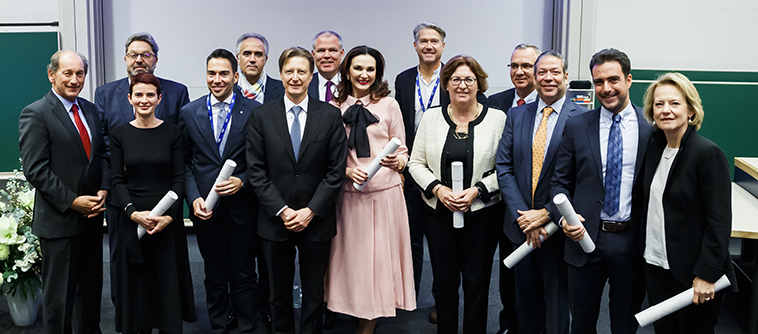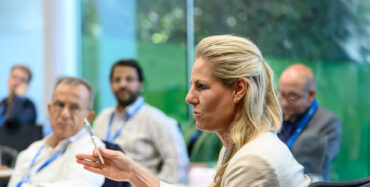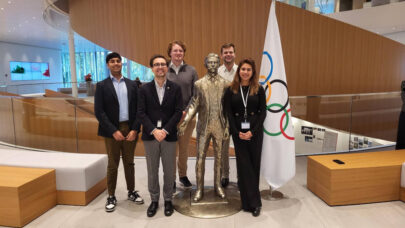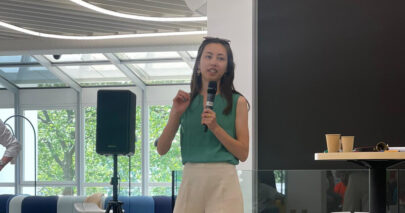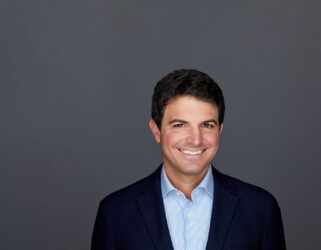The biggest risk for companies like Nestlé is losing the trust of consumers and society, the Chairman and former CEO of the world’s largest food manufacturer said in a speech at the IMD campus yesterday.
Paul Bulcke, speaking to the first ever group of graduates of IMD’s Board Director Diploma, said: “You have to earn it day in, day out. We sell over one billion products a day. Each one of them is building trust, but it’s also possible to lose it … It is one of the most valuable things the board has to care for.”
This sentiment was echoed by IMD President Jean-François Manzoni. “We live in a society where citizens and employees are losing trust in their companies and in their business elites. Boards have a big role to play in ensuring that the system remains relatively fair and people remain convinced that the system is sufficiently fair because when they feel that it is not fair, they take matters into their own hands.”
The ultimate caretaker
Bulcke also shared his insights on what it’s like to chair a company the size and scale of Nestlé – the world’s largest food manufacturer with a presence in 190 countries – and spoke about the role of board directors across the business spectrum.
“The duty of a board, in my eyes, is to be the ultimate caretaker of the health of a company,” he said. “And it doesn’t matter if it’s a big or small company.
“The board should stand for the purpose and values of the company.” This purpose is like “glue”, he said, before adding: “It really helps to have a few individuals who can ensure that we can take, or maintain, a strategic perspective. You also need individuals who can ensure that we maintain an ethical perspective and also a few individuals who can find the right balance between challenge and support.”
Adding value
And while it’s important to look after shareholders, boards should stay focused on long-term objectives rather than short-term gains.
“Some shareholders want short-term returns,” he said, “but you can’t change what you have promised 99 percent of them.”
“You find a territory where you want to play, where you want to really create value for the future. It’s the board’s job to do that. At the end of the day we should care for the shareholder and – to some extent – keep them quiet. The board has to make sure the company is dependable, that they can count on you, and that you live up to what you promised. They invested in Nestlé for the long term so you have to deliver over time,” he said.
These value needs to be passed on to wider society, not just to shareholders, Bulcke said. “A company can only survive and be successful over time when it creates value for shareholders, but also for all stakeholders in society. This is something that you build into your existence, your supply chain, it’s what you do every minute of the day, every day of the year.
“How we link up with local communities and work with farmers so they have a better livelihood … we care for them and share knowledge. Creating shared value is intimately linked with our reason for being. That is what gives us our purpose.”
Board dynamics
Aside from having the right strategy and purpose, a successful board is also one that has the right structure and people in place, Bulcke added. “The dynamics of a board depends on personalities,” he said. “And first of all, the board members have to have full buy-in of the company’s strategy – understanding it and embracing it. These are the preconditions.”
A variety of capabilities and complementary backgrounds are also important, Bulcke added, before stressing the need to appoint board members who are in touch with the real world.
“You need people that are still relatively active or at least in touch with reality. And this reality is changing fast. You cannot have people who are retired and not active for many years, because then they are out of focus” he said. “You need the wisdom of age, but the sharpness of reality. The board should be built up with intention … capabilities, expertise but also a mindset.”
The world has become a risky place in which to operate, Bulcke said, with threats such as cyber security and climate change challenging the very existence of companies. “The biggest challenge facing boards and management in general is having to make judgement calls in an ambiguous world,” he said. “There is nothing more difficult than that.”
